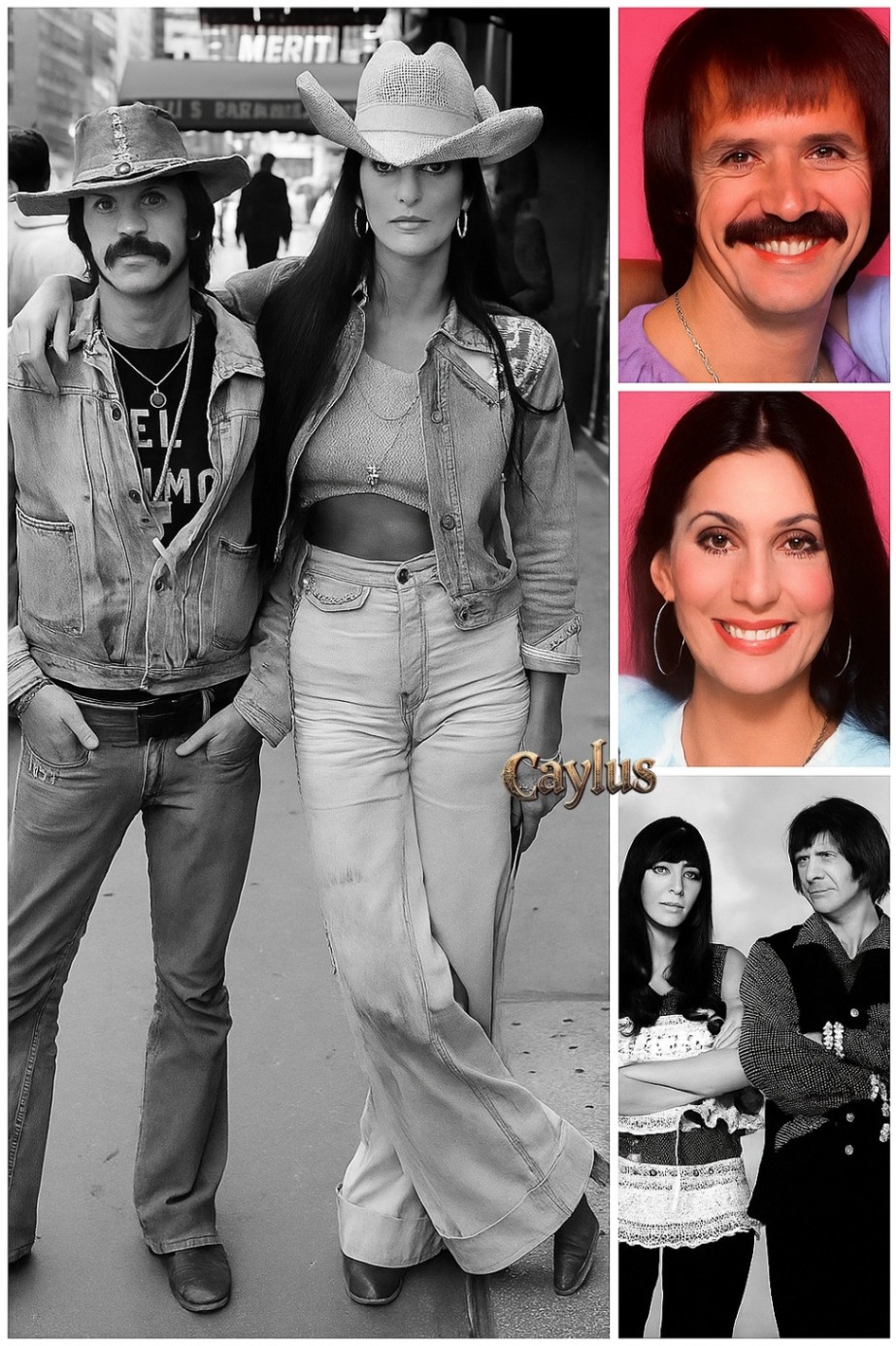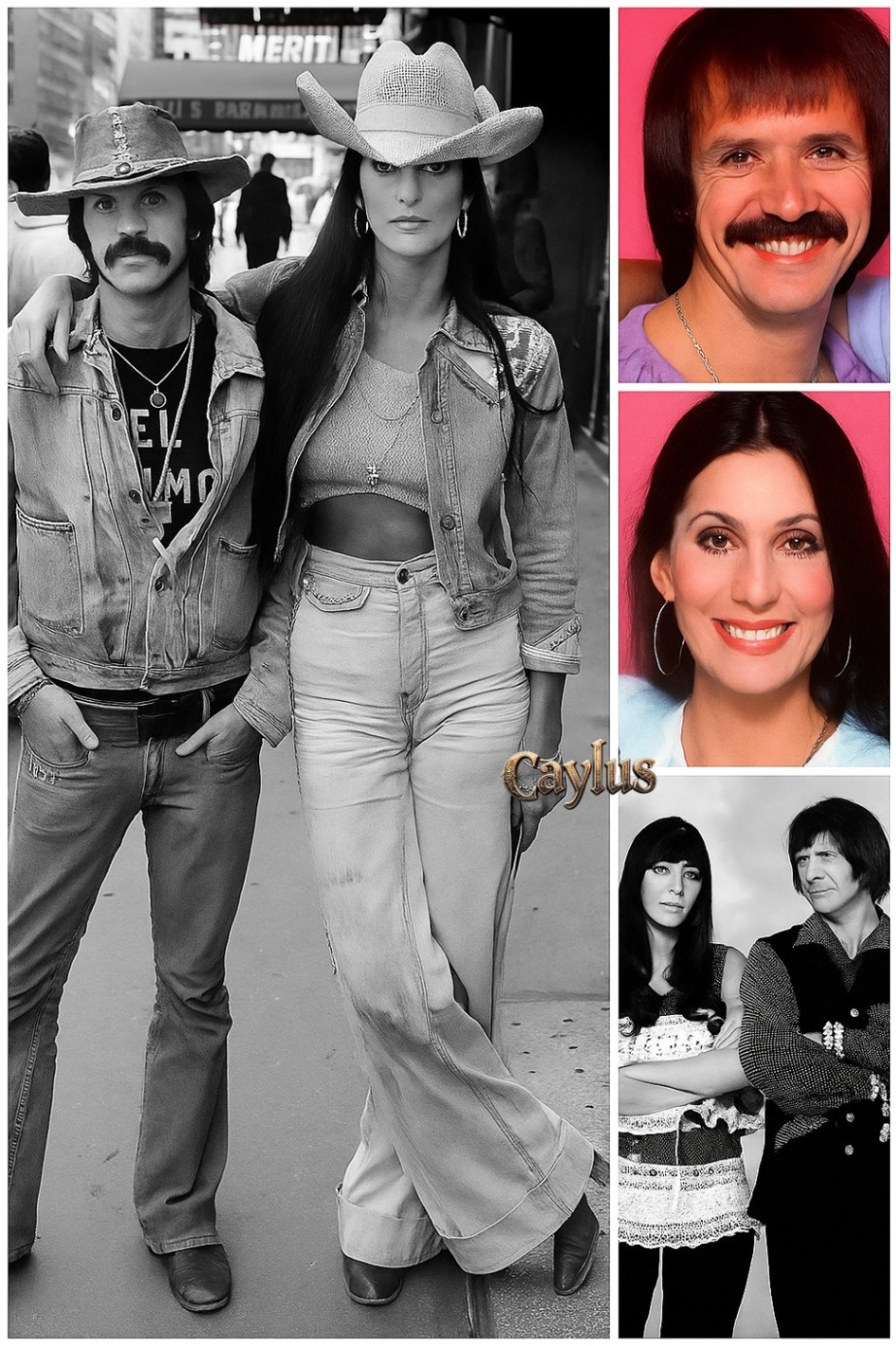Cher and Sonny Bono’s divorce in 1975 was the result of deep-seated issues that had been building for years, both personally and professionally. Their relationship, which began as a love story between a young, ambitious singer and an aspiring music producer, evolved into a highly successful entertainment partnership. But behind the scenes, their marriage was marked by control, financial disputes, infidelity, and Cher’s growing desire for independence.

Cher and Sonny met in 1962 when she was just 16, and he was 27. At the time, Sonny was working for producer Phil Spector and helped Cher get her start in the music industry. Their romantic and professional relationship developed quickly, and they became known for their unique chemistry, which later led to hit songs like “I Got You Babe” and “The Beat Goes On.” However, even in the early years, their dynamic was far from equal. Sonny took control of almost every aspect of their career and finances, making business decisions without consulting Cher. She was young and inexperienced, trusting him to handle everything while she focused on performing.
By the late 1960s, their musical success had translated into television stardom with “The Sonny & Cher Comedy Hour,” a hugely popular variety show that showcased their playful on-screen banter. To the public, they appeared to be a happy and successful couple, but in private, their marriage was crumbling. Cher later revealed that Sonny was not only unfaithful but also emotionally distant. She described feeling trapped in the relationship, unable to express her own creative ideas or make decisions for herself.
One of the key factors that led to their divorce was Sonny’s control over their finances. Despite their joint success, Cher discovered that she had little to no access to the money they had earned together. Sonny had structured their contracts in a way that left her financially dependent on him. This became a serious issue when she decided she wanted to pursue a solo career. She realized that nearly everything they owned contracts, business arrangements, and rights to their work was in Sonny’s name, making it extremely difficult for her to separate from him professionally.

The tension reached a breaking point in early 1974 when Cher filed for divorce, citing “involuntary servitude.” This unusual legal term implied that she had been forced into a situation where she had little to no control over her own life and career. She accused Sonny of treating her like a business asset rather than an equal partner. She also wanted to dissolve their professional relationship, which led to a complicated legal battle over their television contracts and performances.
Infidelity was another major issue. Cher later admitted that she knew Sonny had multiple affairs during their marriage, and while she had initially accepted it, she eventually grew tired of being in a relationship where she felt emotionally neglected. She later described Sonny as someone who loved her, but not in the way she needed to be loved. Meanwhile, Sonny claimed that Cher had changed and wanted to move in a different direction, but he avoided discussing his own role in their marriage problems.
Their divorce proceedings were contentious. Cher fought to regain control over her career, which was still largely tied to Sonny. She was forced to give up a significant portion of her earnings to gain her independence. The legal battles over their business deals continued even after their divorce was finalized in 1975. One of the biggest disputes revolved around “The Sonny & Cher Comedy Hour,” which Sonny wanted to continue, while Cher wanted to move on. She eventually won the rights to her own name and was able to launch her solo career.
The divorce marked a turning point in Cher’s life. She reinvented herself as a solo artist with hits like “Half-Breed” and “Gypsys, Tramps & Thieves,” proving that she could succeed without Sonny. Her independence allowed her to explore a new image, breaking away from the wholesome, comedic persona she had been confined to during their marriage. Sonny, on the other hand, struggled to maintain his entertainment career and later turned to politics, eventually becoming the mayor of Palm Springs and a U.S. congressman.

Despite their painful separation, the two remained connected in a complicated way. They reunited professionally for brief appearances, and Cher publicly mourned Sonny’s death in 1998, delivering an emotional eulogy where she acknowledged both his flaws and the impact he had on her life. Their divorce had been necessary for her to grow as an artist and as a person, but she never forgot the influence he had on shaping her early career.
Their split was not just a personal breakup but a battle for identity and independence. Cher had to fight for her freedom, both financially and emotionally, in a world where women in the entertainment industry often had little control over their own careers. The divorce allowed her to step out of Sonny’s shadow and become the global icon she is today